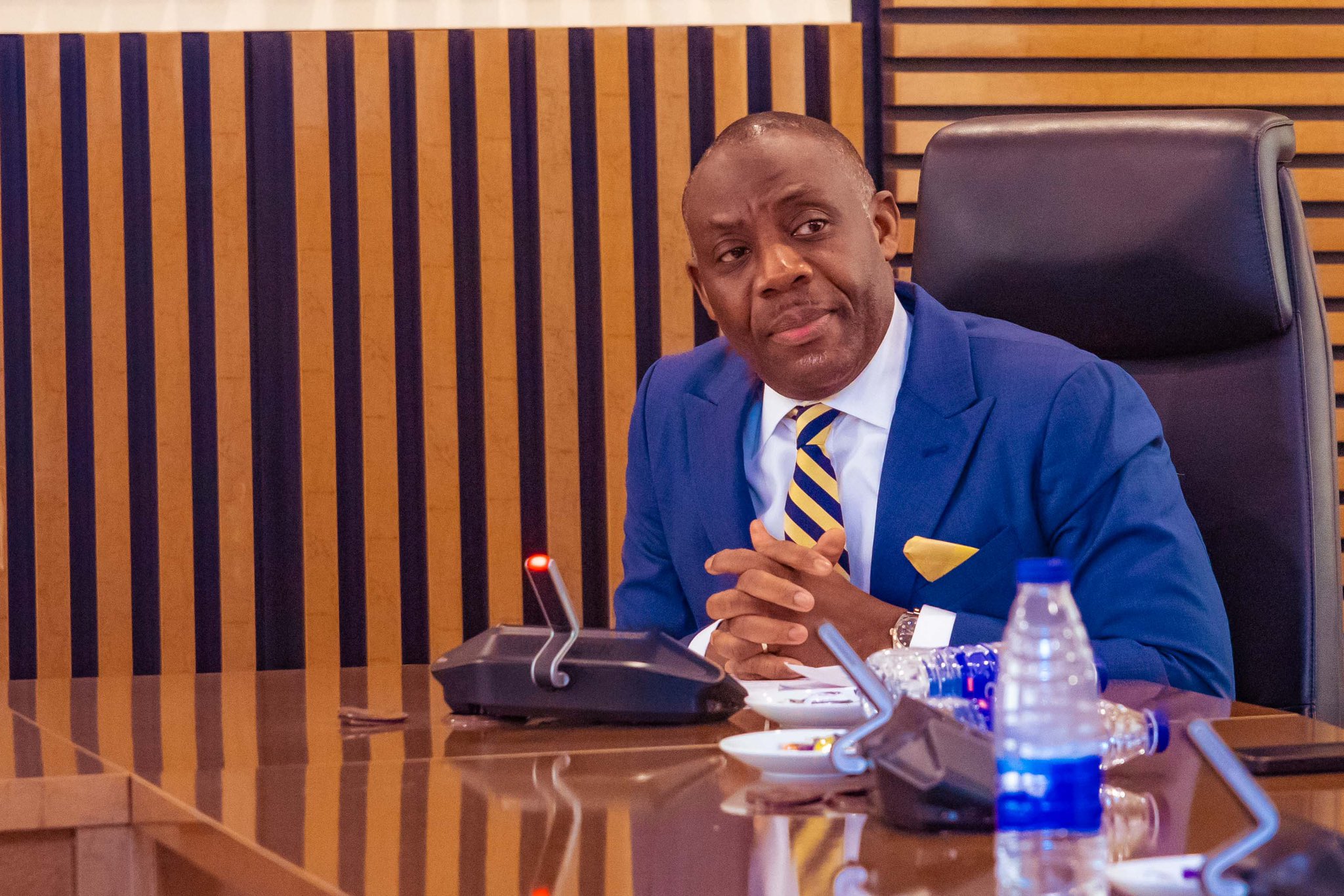Education
Vice Chancellor wives plan Turkey trip amid ASUU strike

Wives of Vice Chancellors of public universities are set to travel to Istanbul, Turkey for a five-day conference, The PUNCH has learnt.
This is as the ongoing strike embarked upon by the Academic Staff Union of Universities since February 14, 2022, entered its third month.
According to a letter by the Committee of Vice Chancellors of Nigerian Universities, the programme is scheduled to hold from 18 to 23 July 2022, in Istanbul.
The letter which was dated May 5, 2022, and sighted by our correspondent, was signed by the Committee’s Secretary-General, Yakubu Ochefu.
Ochefu noted that each of the VC wives would pay a sum of N1.5m as course form to attend the programme.
The letter addressed to vice chancellors was titled, ‘Invitation to the Istanbul 5-Day Leadership & Management Masterclass, Fellowship Induction for Spouses of Vice Chancellors, Women in Academics and Higher Education Leadership’.
It partly read, “We understand the vital role spouses play in supporting Vice Chancellors as they execute their day- to day administration of universities. It is therefore imperative, that capacity building exercises be put in place for the Women in Academics and spouses of Vice Chancellors in Nigerian Universities.
READ ALSO:
- Gani Adams writes Governor Emmanuel over killing of Yoruba in Akwa Ibom
- BREAKING: Osinbajo Picks N100m APC Presidential Forms
- Buhari Arrives In Ebonyi Amid Tight Security
“In this regard, the Committee’s Secretariat, In Partnership with Win Institute for Gender Studies, Nigeria in collaboration with her Turkey-based learning partner, Istanbul Egitimler, have put together a 5-day Leadership & Management Masterclass, and Fellowship Induction for spouses of Vice Chancellors, women academics and higher education leadership in Africa.”
Similarly, the Committee of Vice Chancellors of Nigerian Universities Spouses is set to hold a two-day conference at the Tayo Aderinokun Memorial Hall at the University of Lagos.
The conference slated for May 9, 2022, has UNILAG VC, Prof O.T. Ogundipe, and his wife as hosts while former Chairman of First Bank of Nigeria, Dr Ibukun Awosika, is pencilled as one of the speakers.
ASUU had on February 14 embarked on industrial action.
The union led by Prof Emmanuel Osodeke said it made the decision for the Federal Government and its agencies to meet the lingering demands of the union.
The National Association of Nigerian Students has since threatened fire and brimstone, censuring the Federal Government for abandoning students of public universities but politicians including current ministers have shunned the striking lecturers and protesting students.
Minister of State for Education, Emeka Nwajiuba; as well as Minister of Labour and Employment, Chris Ngige; both of the ruling All Progressives Congress recently picked up the party’s N100m presidential nomination and expression of interest forms each while lecture rooms remained shut for about three months this year.
Students of public universities had also been at home for nine straight months in 2020 when ASUU and the Federal Government had a face-off over unpaid areas, choice of payment platforms, amongst other contentious issues.
Education
12-year-old Nigerian girl Eniola Shokunbi invents air filter to reduce spread of diseases in US schools

12-year-old Nigerian girl Eniola Shokunbi invents air filter to reduce spread of diseases in US schools
A 12-year-old Nigerian from Connecticut, USA, Eniola Shokunbi, has designed an air filter to reduce spread of air borne diseases in the US schools.
The design aims at creating low-cost air filters for classrooms.
The Connecticut State Bond Commission has approved $11.5 million in funding for the design.
Eniola in her fifth grade at Commodore MacDonough STEM Academy of Middletown, they were tasked with creating a solution to enhance safety in schools during potential future pandemics.
Therefore, to combat airborne viruses like COVID-19, she developed a simple but effective air filter system.
Design
Shokunbi’s air filter design showcases both innovation and cost-effectiveness. The unit is constructed using a simple combination of components: a box fan, four furnace filters, duct tape, and cardboard.
READ ALSO:
- Gunmen kill two soldiers in Abia checkpoint attack
- 94 arrested as task force raids Lagos rail corridor squatters
- Two dead, buildings destroyed in American factory explosion
This ingenious assembly results in a remarkably low production cost of approximately $60 per unit. This makes it a highly affordable alternative to commercial air purifiers.
Eniola Shokunbi said, “The air goes through all the sides, and it comes out of the top. So it filters in and out.”
With support from scientists at the University of Connecticut, UConn, Eniola’s design underwent rigorous testing.
The Environmental Protection Agency, EPA, confirmed that the device effectively eliminates over 99% of airborne viruses, showcasing its potential to significantly improve classroom safety.
The recent approval by the State Bond Commission allocates $11.5 million for the implementation of these air filters across Connecticut schools.
This funding is part of UConn’s SAFE-CT: Supplemental Air Filtration for Education Program, which aims to ensure that every public school classroom has access to these vital air purification systems.
Eniola’s vision extends beyond Connecticut; she aspires to see her air filters implemented in classrooms nationwide.
“A lot of people don’t realize that the only thing standing between them and getting sick is science,” Eniola Shokunbi said.
Also, she emphasized the importance of investing in scientific solutions for children’s health.
12-year-old Nigerian girl Eniola Shokunbi invents air filter to reduce spread of diseases in US schools
Education
Minister wants FG to revive Jonathan’s Almajiri system of education

Minister wants FG to revive Jonathan’s Almajiri system of education
Alausa made the call when the Senate Committee on Tertiary Institutions and TETFund led by its Chairman, Sen. Muntari Dandutse, visited the ministry for an oversight function.
Alausa, who was newly posted to the ministry, decried the high rate of out-of-school children, saying that with enough fund allocation, the menace would be tackled.
“We have up to 20 million out-of-school children.
“I met with the Executive Secretary of the National Commission for Almajiri and Out-of-School, who said that the 20 million was even under-quoted.
“It is about 40 million to 50 million. This is a danger that can consume everybody. We have to make these schools work.
“Former President Goodluck Jonathan built about 137 Almajiri schools during his tenure, but today, it is sad that only a few of these schools are operational,” he said.
Alausa said that there was a lot of infrastructural decay in the schools, adding that with the Almajiri Commission established by an act of Parliament, the ministry would empower the children.
READ ALSO:
He, however, called for more funding to achieve the desired goal of ensuring that out-of-school children were taken off the streets.
The minister further said that the ministry would find a way of keeping children in school by making the Home Grown Feeding Programme viable and sustainable.
“We will design the nutrition, we will ensure that the children get good nutrition which will translate into better brain development, and enable us to develop human capital,” he said.
He also said that the nation was churning out graduates that were not employable.
“We have to refocus, and the way we are refocusing is that going forward, we will focus on Science Technology, Engineering, Mathematics and Medical Sciences (STEMM).
“Today, we have hospitals built, infrastructure is there and funded, but we do not have medical personnel to run them.
“We will also focus on technical, and vocational education. We will encourage 80 per cent practical training and 20 per cent theory,” she said.
The Chairman of the Committee, Sen. Muntari Dandutse, said that the Senate would collaborate with the ministry to make education a priority in the country.
Dandutse also called on the minister to give attention to the issues of security and power supply to higher institutions.
“Most of the allocation to the universities is going to the payment of electricity bills. We need to work together to ensure that they have an uninterrupted power supply,” he said.
Minister wants FG to revive Jonathan’s Almajiri system of education
NAN
Education
FG reverses 18-year admission entry for varsities, sets new priorities

FG reverses 18-year admission entry for varsities, sets new priorities
In a significant policy shift, Nigeria’s newly appointed Minister of Education, Dr. Tunji Alausa, has announced the abolition of the 18-year admission benchmark for tertiary institutions across the country.
During his inaugural press conference in Abuja on Wednesday, he also indicated plans to review the nation’s education policy.
Despite these changes, Alausa reaffirmed that there will be no reversal of the Federal Government’s recent decision to invalidate over 22,700 degree certificates obtained by Nigerians from certain “fake” universities in neighboring Togo and the Benin Republic.
This move aims to uphold the integrity of the nation’s education system.
Emphasizing the need for practical education, Alausa noted that the current system cannot continue producing graduates without corresponding job opportunities, which has contributed to Nigeria’s rising unemployment rates.
To address this, he announced plans for the federal government to partner with private sector operators to provide training and development opportunities for students, unlocking their potential for future employment.
Additionally, Alausa expressed a commitment to empowering universities of agriculture to adopt commercial farming practices as a strategic approach to combat food insecurity in the country.
FG reverses 18-year admission entry for varsities, sets new priorities
-

 International3 days ago
International3 days agoBelgium University offers scholarship up to €12,000 for Master’s students
-

 Sports10 hours ago
Sports10 hours agoBREAKING: Super Eagles qualify for AFCON 2025
-

 Railway3 days ago
Railway3 days agoNigerian railway adds extra train to Friday, Saturday trips on Lagos-Ibadan route
-

 International3 days ago
International3 days agoUK announces 45,000 seasonal worker visas for 2025
-

 Aviation12 hours ago
Aviation12 hours agoDisaster averted as bird strike hits Abuja-Lagos Air Peace flight
-

 Education2 days ago
Education2 days ago12-year-old Nigerian girl Eniola Shokunbi invents air filter to reduce spread of diseases in US schools
-

 International3 days ago
International3 days agoSaudi crown prince says Israel committing ‘genocide’ in Gaza
-

 Business3 days ago
Business3 days agoTop 5 crypto apps that work with Nigerian Bank accounts













